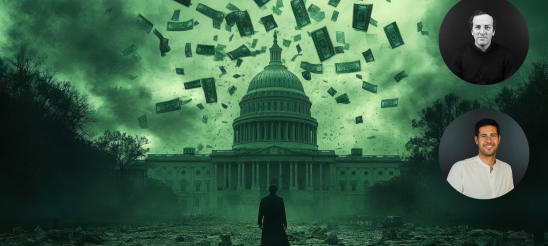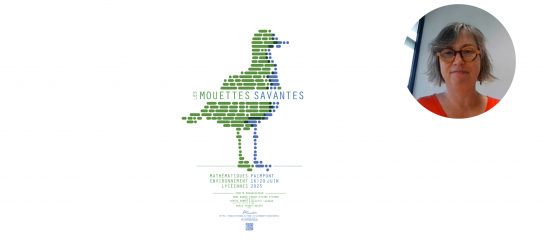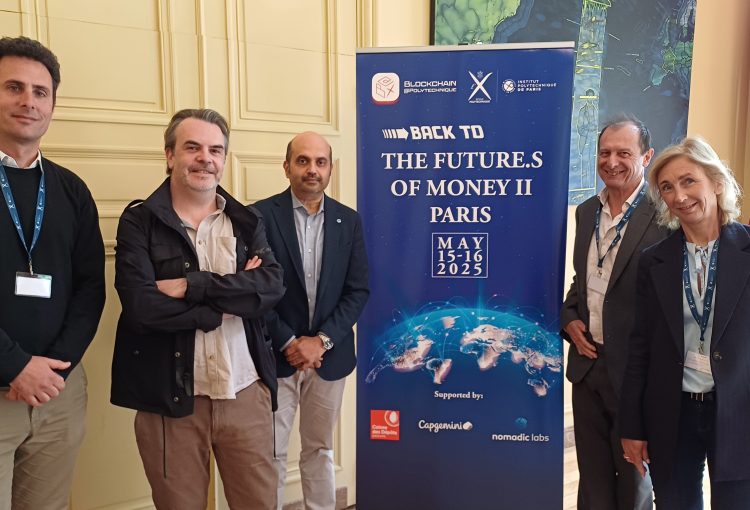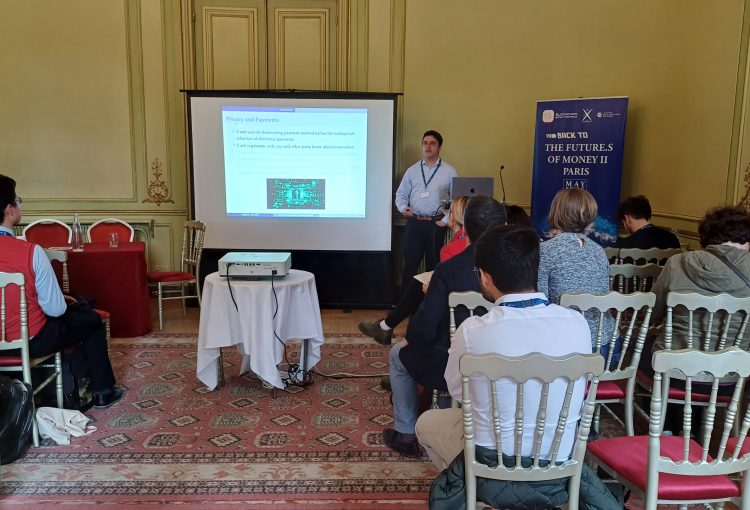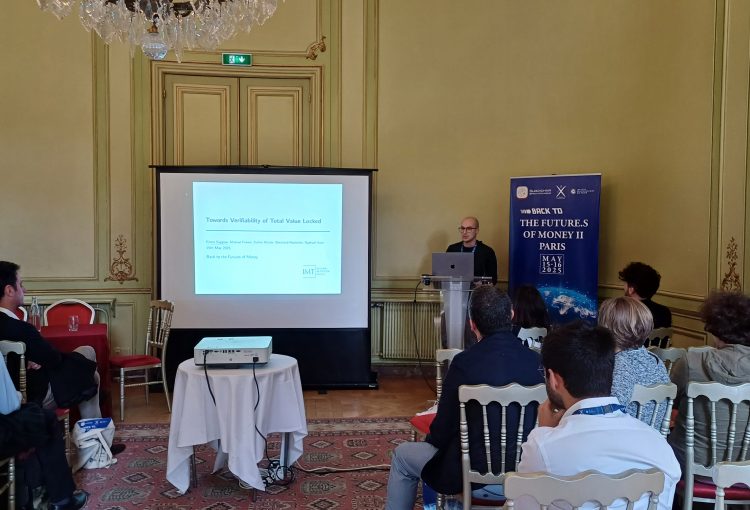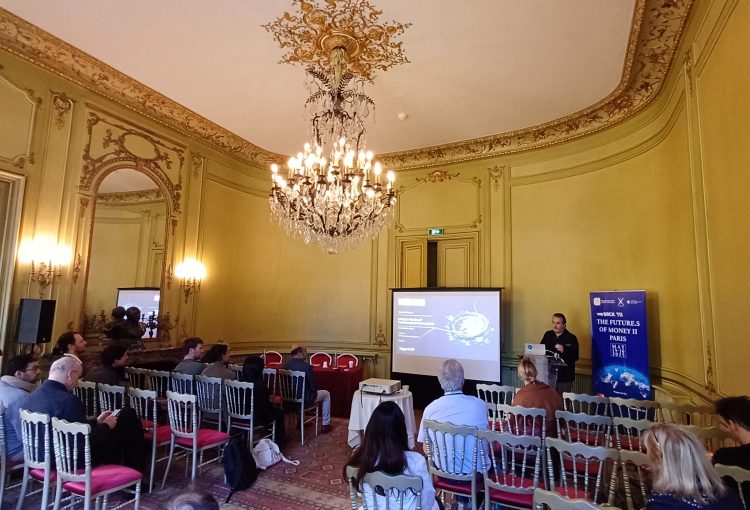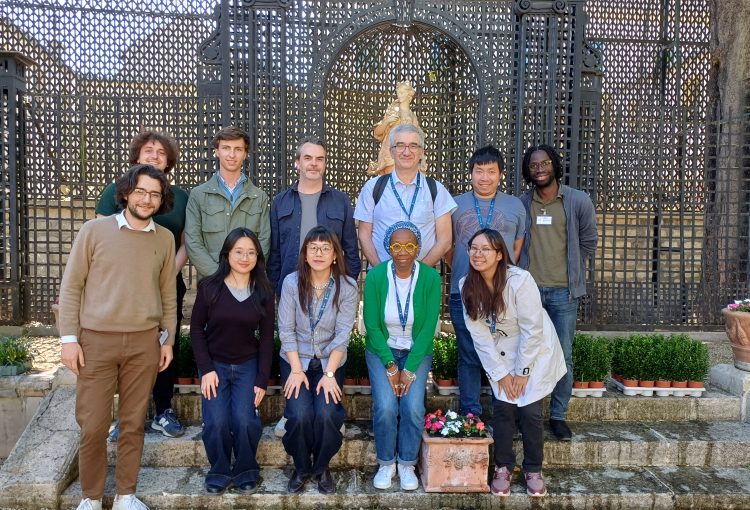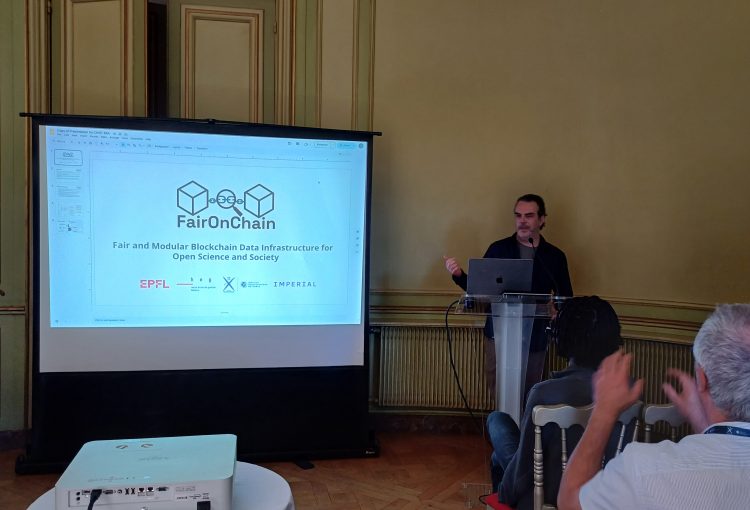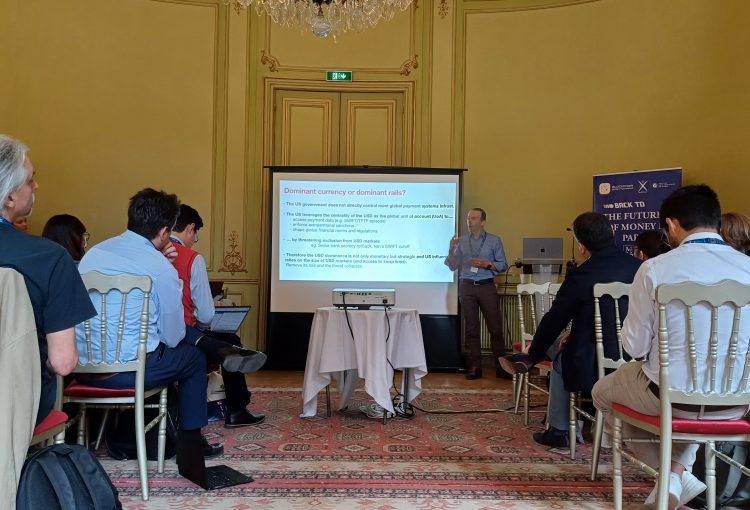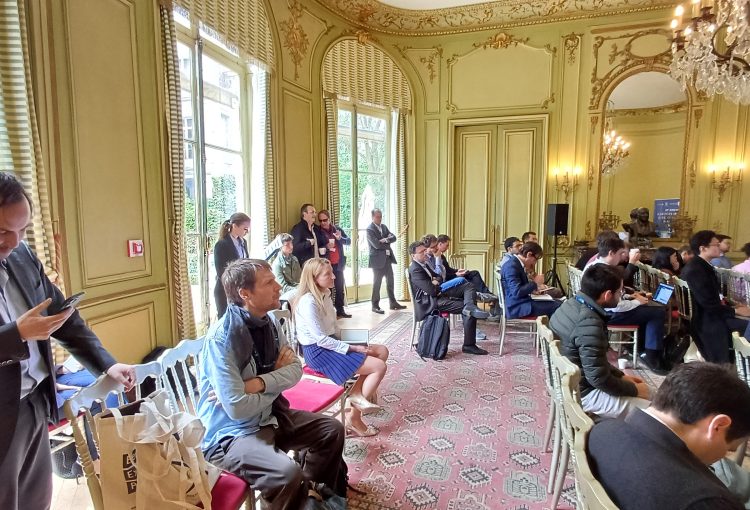Le 26 mai 2025, la Défenseure des droits a rendu une décision (n°2025-086) concernant les travailleurs et travailleuses de la plateforme de micro-travail française. Cette décision s’appuie largement sur les résultats d’un travail de recherche mené par Paola Tubaro (CNRS-CREST), Antonio Casilli (Télécom Paris) et Juana Torres-Cierpe (Inria), dans le cadre du programme DiPLab.
Lien vers la décision : Décision n°2025-086 – Défenseur des droits
Un travail collectif pour mieux comprendre et faire reconnaître les discriminations
Pendant plusieurs années, l’équipe de recherche a enquêté sur les conditions de travail dans le micro-travail : « Il s’agit de petites tâches effectuées en ligne, souvent rémunérées de manière minimale : classification d’images, transcription de textes, traduction […] principalement utilisées pour alimenter des algorithmes et des solutions d’intelligence artificielle ».
Leur rapport met en lumière des réalités peu visibles :
- Des conditions souvent précaires,
- Des travailleurs et travailleuses exposés à des formes de discrimination (par l’algorithme, par les clients, ou par la plateforme elle-même),
- Une majorité de femmes, souvent en situation de grande vulnérabilité économique et sociale.
Dans le cas étudié, les règles d’accès à la plateforme excluaient certains profils, notamment en fonction du pays de résidence, ce qui soulève des questions importantes au regard du droit.
Une recherche à fort impact sociétal
Cette affaire montre que la recherche peut avoir un véritable impact hors du monde académique. Grâce à ce travail rigoureux et engagé, la Défenseure des droits a pu prendre une décision fondée, qui servira à mieux encadrer les pratiques des plateformes numériques, et à protéger celles et ceux qui y travaillent.
C’est aussi une belle reconnaissance pour Paola Tubaro, Antonio Casilli et Juana Torres-Cierpe, qui prouvent une fois encore que les sciences sociales ont un rôle essentiel à jouer dans les débats contemporains.
Pour aller plus loin
Rapport complet : Discriminations et vulnérabilités dans les plateformes de micro-travail françaises
Projet DiPLab : diplab.eu
Finance verte et économie verte : regards croisés
Les dérèglements climatiques, l’effondrement de la biodiversité et l’épuisement des ressources naturelles mettent en évidence les limites du modèle économique actuel fondé sur une croissance intensive et une exploitation non durable des écosystèmes. Dans ce contexte, deux champs de recherche apparaissent aujourd’hui comme essentiels pour penser et mettre en œuvre la transition écologique : la finance durable et l’économie verte.
Ces deux approches interrogent en profondeur les fondements mêmes de la régulation économique, du rôle des marchés financiers et des trajectoires de développement.
La finance durable regroupe l’ensemble des pratiques financières qui intègrent des critères environnementaux, sociaux et de gouvernance (ESG) dans les décisions d’investissement. Son objectif est de soutenir des projets ayant un impact positif sur la société et la planète, tout en assurant une rentabilité à long terme.
L’économie verte, elle, désigne un modèle économique qui vise à réduire les risques environnementaux et la pénurie des ressources, tout en favorisant la croissance, l’emploi et le bien-être social. Elle repose notamment sur l’efficacité énergétique, la réduction des émissions de carbone, la préservation des écosystèmes et l’innovation technologique durable.
Dans cette interview croisée, qui met en lumière les articulations et les avancées, de ces deux disciplines, Olivier-David Zerbib, chercheur au CREST et professeur à l’ENSAE Paris, spécialiste de la finance durable et cotitulaire avec Peter Tankov de la chaire “Impact Investing” (Fondation ENSAE-ENSAI, Mirova), et Marion Leroutier, chercheuse au CREST et professeur à l’ENSAE Paris en économie environnementale et lauréate d’une chaire de recherche de la région Île-de-France pour son projet Cyclomob, partagent leurs travaux et expertises. Ils nous offrent des clés d’analyse pour mieux appréhender les dynamiques à l’œuvre dans la transformation des systèmes économiques et financiers face à l’urgence écologique, et ainsi accélérer la transition vers un modèle de développement bas carbone, inclusif et résilient, dans la perspective d’une économie juste et soutenable.
David, comment les investisseurs peuvent avoir de l’impact sur les entreprises pour les pousser à se verdir ?
Olivier-David Zerbib : Cette question est abordée par plusieurs récents travaux de recherche. A ce stade, certaines analyses font consensus. En premier lieu, il est important de réallouer le capital vers les entreprises à faible empreinte environnementale (ou “entreprises vertes”) et celles qui conditionnent l’activité des entreprises vertes. Sur le plan climatique, il s’agit, par exemple, des producteurs d’énergie renouvelable et des producteurs de panneaux solaires.
Cependant, désinvestir des entreprises ayant une forte empreinte environnementale (ou “entreprises brunes”) pour faire croître leur coût du capital et les pousser à se verdir est une stratégie qui ne semble être que modérément efficace (De Angelis, Tankov, Zerbib, 2023 ; Hartzmark and Shue, 2023).
Plutôt que se détourner des entreprises brunes, les investisseurs peuvent accroître leur allocation de capital dans ces dernières afin de s’engager auprès d’elles en tant qu’actionnaires. Cette stratégie, appelée “engagement actionnarial”, permet aux investisseurs d’exercer une pression sur les entreprises, dans un cadre privé (via des courriels, des appels, ou des entretiens avec la direction de l’entreprise) ou public (par exemple, en déposant des résolutions ou en votant en assemblée générale), conduisant à une inflexion significative de leurs pratiques (Broccardo, Hart, Zingales, 2022 ; van der Kroft, Palacios, Rigobon, Zheng, 2025).
En tout état de cause, que ce soit en matière d’allocation d’actifs ou d’engagement actionnarial, la coordination entre les investisseurs est essentielle. D’une part, afin d’optimiser leur impact sur le verdissement de l’économie, les investisseurs doivent allouer leur capital conditionnellement aux allocations choisies par l’ensemble des autres investisseurs (Green and Roth, 2025 ; Oehmke and Opp, 2025), en privilégiant notamment les entreprises – potentiellement “brunes” – dont les perspectives de verdissement sont les plus fortes. D’autre part, les engagements coordonnés dans le cadre de coalitions d’investisseurs permettent d’accroître la pression sur les entreprises (Dimson, Karakas, Li, 2015).
En quoi votre récent modèle* apporte un éclairage nouveau sur la question du greenwashing et de l’investissement durable ?
* Working paper : “Can investors curb greenwashing?” F. Cartellier, P. Tankov, O. D. Zerbib, 2024
Olivier-David Zerbib : Le greenwashing est la pratique selon laquelle une entreprise déclare qu’elle contribue à réduire son empreinte environnementale plus que ce qu’elle ne le fait en pratique. Cette pratique est largement répandue, à différents degrés : selon une étude des sites internet des entreprises européennes en 2021, la Commission Européenne a montré que, dans 42% des cas étudiés, les déclarations environnementales des entreprises étaient vraisemblablement fausses ou trompeuses. Dans un cadre juridique où le greenwashing n’est que peu, ou pas, pénalisé, nous montrons que les investisseurs ont un rôle important à jouer pour inciter les entreprises à réduire leur pratique du greenwashing (Cartellier, Tankov, Zerbib, 2024). En pénalisant dans leur fonction d’utilité les entreprises ayant fait l’objet d’une controverse sur le plan environnemental, et en accroissant de ce fait leur coût du capital, les investisseurs exercent un double effet bénéfique : ils incitent les entreprises à investir dans le verdissement de leurs pratiques (par exemple, la réduction de gaz à effets de serre) et à limiter leur communication environnementale trompeuse ou exagérée. Toutefois, lorsque l’asymétrie d’information entre investisseurs et entreprises est suffisamment élevée, les entreprises continuent de communiquer de manière trompeuse à un degré qui dépend de “l’espérance de pénalité” auxquelles elles s’exposent.
Que pensez-vous des labels ou notations ESG actuels ?
Olivier-David Zerbib : Au cours des cinq dernières années, l’arsenal européen de labellisation durable s’est significativement consolidé. En particulier, le règlement européen relatif à la transparence et à l’intégrité des activités de notation environnementale, sociale et de gouvernance (ESG), publié en décembre 2024, prévoit que les fournisseurs de notation ESG devront être autorisés et supervisés par l’Autorité européenne des marchés financiers et se conformer aux exigences de transparence, notamment en ce qui concerne leur méthodologie et leurs sources d’information. Ces règlementations poursuivent deux principaux objectifs : accroître la transparence sur les pratiques des entreprises et permettre à celles-ci d’envoyer un signal crédible de leur engagement sur les enjeux environnementaux.
Cette transparence est bénéfique pour l’ensemble des investisseurs. Tout d’abord, elle permet aux investisseurs non qualifiés et peu informés de réorienter leur épargne vers des fonds effectivement verts, selon la définition des labels. De surcroît, la réduction de l’incertitude sur les empreintes environnementales des entreprises permet aux investisseurs verts de mettre en place des actions plus prononcées (réallocation significative de capitaux, engagement actionnarial ambitieux), renforçant ainsi la pression qu’ils exercent sur les entreprises pour les pousser à se verdir (De Angelis, Tankov, Zerbib, 2023).
Pour autant, les labels et les notes ESG présentent, au moins, trois faiblesses majeures. La première faiblesse réside dans l’hétérogénéité méthodologique. En conséquence, la faible corrélation entre les notes ESG des principales agences de notation (Berg, Koelbel, Rigobon, 2022) alimente l’incertitude sur ces notes. La seconde tient au biais de couverture : parce que les études des analystes financiers se concentrent moins sur les petites et moyennes entreprises ainsi que les marchés émergents, leurs notes ESG sont généralement moins fiables. Enfin, nombre de labels se concentrent encore trop sur la gestion des risques financiers liés à l’environnement plutôt que sur la contribution des entreprises à la réduction de leur empreinte environnementale.
Les entreprises sont elles-mêmes sujettes à des coûts environnementaux. Marion quel est le coût de la pollution pour les entreprises et, David, comment peuvent-elles devenir actrices de la transition ?
Marion Leroutier : Clarifions que l’on parle ici de la pollution atmosphérique locale, qui affecte directement la santé des personnes exposées, et pas des émissions carbonées, qui contribuent au changement climatique mais n’ont pas d’effet sanitaire direct. Dans un article récent, nous investiguons le coût de l’exposition aux particules fines pour l’économie française en se concentrant sur la façon dont cette pollution affecte les ventes des entreprises (Leroutier et Ollivier, 2025). Nous avons en tête que respirer un air pollué peut nuire à la performance des salariés, qui peuvent tomber malade du fait de la pollution mais aussi voir leurs capacités productives des entreprises. Par ailleurs, la pollution de l’air peut aussi affecter les comportements de consommation des individus, soit parce qu’ils sont conscients des niveaux de pollution et renoncent à certaines sorties, soit parce qu’ils sont eux-mêmes malades à cause de la pollution et que leur budget est grevé par les dépenses médicales associées.
Nous utilisons des données riches portant sur 160 000 entreprises françaises et 400 000 salariés pour comprendre à quel point ces mécanismes sont à l’oeuvre dans le contexte français, où la pollution de l’air est bien plus faible qu’en Chine ou qu’en Inde, mais dépasse néanmoins régulièrement les seuils préconisés par l’Organisation mondiale de la santé (OMS). Nous estimons l’effet, pour une entreprise, d’être exposé un mois donné à un air particulièrement pollué sur ses ventes mensuelles au cours des mois suivants, et les mécanismes sous-jacents. Nous définissons l’exposition à la pollution de l’entreprise à partir des concentrations moyennes de pollution aux particules fines observées dans toutes les communes de France où l’entreprise possède des établissements.
Comme nous savons que la conjoncture économique locale peut elle-même affecter les concentrations de pollution aux particules fines, nous utilisons les variations de direction de vent observées dans chaque commune comme un événement fréquent qui affecte la pollution sans être directement corrélé à l’activité économique locale. Nous trouvons que lorsque les firmes sont exposées à un air 10% plus pollué, cela réduit leurs ventes les deux mois suivants à hauteur de 0,4%, avec des effets plus ou moins importants selon les secteurs d’activité. Cet effet peut sembler faible, mais lorsque l’on extrapole à l’économie entière, on trouve que sur la période 2009-2015, réduire la pollution aux particules fines de 25% pour atteindre les seuils préconisés par l’OMS aurait permis de générer 7 milliards d’euros de valeur ajoutée supplémentaire. Ce bénéfice économique lié à l’amélioration de la qualité de l’air est important : le montant est comparable à la valeur monétaire des bénéfices en matière de réduction de la mortalité. Or, bien souvent il n’est pas mentionné dans les analyses coût-bénéfices visant à décider de la pertinence ou non de rendre les régulations sur la qualité de l’air plus strictes. Notre travail suggère donc qu’il est crucial de tenir compte, au-delà des effets bien documentés de la pollution atmosphérique sur la santé, de ses effets négatifs sur l’économie.
Olivier-David Zerbib : Au-delà des motivations éthiques non pécuniaires, les incitations financières à se verdir sont fortes pour les entreprises. En effet, le coût environnemental de l’inaction est significativement plus élevé que celui de l’action, compte tenu non seulement des évènements climatiques extrêmes résultant du changement climatique, mais aussi de l’évolution de la réglementation environnementale, de l’accroissement du prix du carbone, des avancées technologiques sur le plan environnemental, et du renforcement des préférences pro environnementales des parties parties prenantes (induisant une pression de la part des consommateurs, des investisseurs, des employés et des partenaires dans la chaîne de valeur). De plus, des mécanismes de soutien à la transition écologique (subventions, prêts avantageux, etc.) incitent également les entreprises à verdir leurs modes de production, leur consommation d’énergie, et les biens qu’elles produisent.
Pour autant, de nombreuses entreprises ont freiné leur dynamique de verdissement, voire même, ont accru leur empreinte environnementale, sous l’effet conjugué de la remise en cause des bénéfices de l’ESG, notamment alimentée par une partie des élus républicains aux Etats-Unis, et de la recherche de profit de court terme. C’est pourquoi, au-delà des enjeux de flux de capitaux, se doter d’une réglementation environnementale ambitieuse et exigeante est une condition incontournable de l’implication de l’ensemble des entreprises dans la transition écologique.
Marion, dans vos recherches vous démontrer que la question du genre a un impact important sur l’empreinte carbone, pouvez-vous nous en dire plus ?
Marion Leroutier : En s’appuyant sur deux enquêtes renseignant les habitudes de consommation alimentaire et de transports d’un échantillon représentatif de la population française, nous trouvons que les femmes émettent en moyenne 26% de CO₂ en moins que les hommes à travers ces deux postes de consommation.
Nous avons en tête un certain nombre de facteurs qui peuvent expliquer ces écarts : les femmes sont moins souvent en emploi et ont des distances domicile travail plus courtes, ce qui peut influencer les écarts d’émission de transport ; les hommes ont besoin de manger plus, ce qui peut en partie expliquer les écarts d’émissions pour l’alimentation. Nous ajustons notre analyse pour ces différents facteurs afin d’évaluer dans quelle mesure ils permettent d’expliquer l’écart moyen de 26 %.
Or, après ajustement pour les écarts de quantités de nourriture consommée, de distances parcourues ou encore les facteurs socio-démographiques, il reste encore un écart. L’écart restant s’explique en grande partie par une consommation moindre de viande rouge et un usage réduit de la voiture. Ces deux comportements sont à la fois fortement émetteurs et associés à la masculinité traditionnelle. A l’inverse, on ne voit pas d’écart significatif lié à l’avion, un autre bien très polluant mais pas particulièrement associé à une norme de genre. Une partie de l’écart d’empreinte carbone entre hommes et femmes pourrait donc s’expliquer par des normes de genre. Des recherches supplémentaires sont nécessaires pour comprendre dans quelle mesure l’écart tiendrait aussi à une plus grande sensibilité des femmes au changement climatique, et à leur propension à adopter des comportements peu carbonés.
Un autre résultat important de notre étude est que la structure du foyer joue un grand rôle dans ces différences d’empreinte carbone. Si on compare les différences d’empreinte carbone femmes hommes parmi les célibataires et parmi les gens en couple, on voit moins de différence pour l’alimentation parmi les gens en couple, et plus pour les transports. Cela suggère que les personnes en couple hétérosexuel convergent dans leurs régimes alimentaires, les femmes augmentant leur empreinte pour se rapprocher de celle des hommes. A l’inverse, les personnes semblent adopter des comportements de transports divergents, ce qui est cohérent avec une spécialisation genrée dans les trajets du quotidien au sein des couples.
Cette recherche suggère que les politiques climatiques pourraient avoir un coût différencié selon le genre. Les femmes, ayant en moyenne une empreinte carbone plus faible, pourraient être moins affectées par ces mesures. Cela pourrait expliquer en partie pourquoi elles se déclarent plus souvent préoccupées par le changement climatique que les hommes, même à orientation politique donnée : il serait en quelque sorte plus facile car moins coûteux pour les femmes d’adopter un mode de vie compatible avec les trajectoires de baisse d’émissions dictées par l’impératif climatique.
La taxation du carbone paraît être intéressante mais est-ce envisageable au niveau industriel et de l’acceptabilité des citoyens ?
Marion Leroutier : La taxe carbone vise à inciter les consommateurs et les producteurs à se tourner vers des produits moins émetteurs de gaz à effet de serre, en renchérissant les produits les plus émetteurs, et ce à moindre coût. A ce jour, 31 pays dans le monde, dont la France, disposent d’une telle taxe, couvrant un ou plusieurs secteurs. Donc c’est faisable ! Nous disposons désormais d’études scientifiques robustes montrant que mettre en place une telle taxe permet, en effet, de baisser les émissions. Par exemple, la Suède est un des premiers pays à avoir mis en place une taxe carbone en 1991, avec un montant passant de 25€ par tonne de CO₂ en 1991 à 115€ par tonne de nos jours. On estime que cette taxe carbone a permis de baisser les émissions de CO₂ dans le secteur du transport de passager de près de 10% par rapport à une situation sans taxe, 15 ans après sa mise en œuvre (Anderson, 2019).
Dans un autre secteur, celui de l’électricité, une taxe carbone mise en œuvre au Royaume-Uni à hauteur de 25€ par tonne a encouragé un report massif de la production d’électricité à base de charbon vers le gaz, et dans une moindre mesure, les renouvelables, avec une baisse des émissions de CO₂ dans ce secteur de 22% par an entre 2013 et 2017. Aujourd’hui, la combinaison de cette taxe et d’autres mesures incitant à la production d’électricité décarbonée (soutien aux énergies renouvelables, entre autre), font que le Royaume-Uni, pays de la Révolution industrielle, a définitivement fermé sa dernière centrale à charbon en 2024.
La question n’est donc pas de savoir si une taxe carbone, en général, est acceptable ou efficace, mais si et à quelles conditions elle peut augmenter pour inciter à des baisses d’émissions encore plus conséquentes. L’épisode des Gilets Jaunes en France en 2018-2019, où l’annonce d’une augmentation de la taxe carbone prévue par la loi a suscité une vive opposition, a marqué les esprits et suscité de nombreuses recherches sur les déterminants de l’acceptabilité des politiques climatiques et notamment de la taxe carbone. Il apparaît, par exemple, que les citoyens soutiennent davantage la taxe carbone si les recettes de la taxe sont utilisées pour financer des investissements verts, comme des infrastructures de transport public ou les énergies renouvelables (Dechezleprêtre et al, 2025). De façon plus générale, les perceptions des citoyens sur l’efficacité et l’équité associés aux politiques climatiques sont deux déterminants clés de leur acceptabilité. Il est donc important pour les chercheurs comme pour les gouvernements d’informer les citoyens sur l’effet attendu de ces mesures sur les émissions, ainsi que sur la répartition des coûts et des bénéfices entre différents groupes de population (urbains vs ruraux, niveau de revenu, etc.).
Quels sont les points communs, les recoupements entre l’économie verte et la finance verte ?
Olivier-David Zerbib : La finance, qui est imbriquée dans la science économique, s’intéresse aux flux de capitaux. La finance environnementale, en particulier, se concentre sur deux grandes questions.
Comment les risques environnementaux se traduisent-ils en risques économiques et financiers ?
Quelles stratégies les investisseurs peuvent-ils mettre en œuvre pour pousser les entreprises à réduire leur empreinte environnementale ?
En recoupant un champ de recherche plus vaste que celui de la finance environnementale, l’économie environnementale peut traiter de sujets très divers tels que les effets des politiques publiques environnementales, l’impact du commerce international sur les émissions de gaz à effet de serre, ou encore l’analyse des pratiques environnementales des entreprises à l’aune des contraintes auxquelles elles sont exposées.
Marion Leroutier : En effet, si la mobilisation de ressources financières est cruciale pour la transition vers une économie soutenable, l’économie de l’environnement [NB : le terme correct en français pour la discipline académique] à un objet plus large que l’étude des flux financiers et des investissements des entreprises. Elle s’intéresse aux différents agents économiques que sont non seulement les entreprises, mais aussi les consommateurs et les gouvernements. Elle cherche à comprendre quel mix de mesures de politiques publiques – qui peuvent prendre diverses formes comme les incitations financières, de politiques de sensibilisation, d’investissements directs dans des infrastructures publiques – permettrait de réaliser la transition verte de la façon la plus efficace et juste possible.
Concernant les risques environnementaux, ils sont étudiés en économie sous un angle multi-dimensionnel et pas seulement du point de vue des risques financiers qu’ils suscitent. Par exemple, on va essayer de comprendre l’effet d’une catastrophe climatique comme une inondation sur différentes dimensions du bien-être humain et à différentes temporalités : à court terme, quel est l’effet sur la mortalité ? Les pays les plus pauvres sont-ils plus vulnérables de ce point de vue ? A moyen terme, les résidents vont-ils quitter la région pour échapper à de futurs inondations ? En se souvenant que le changement climatique va entraîner une hausse de ces évènements climatiques extrêmes, une question cruciale est quel type de politiques publiques peut permettre de réduire la vulnérabilité des populations à ce type de catastrophe ?
Marion, vous êtes lauréate d’une chaire de recherche de la région Île-de-France pour votre projet Cyclomob : vers une mobilité urbaine durable, et vous David, vous dirigez la chaire Impact Investing, qui vise à maximiser l’impact positif de l’investissement sur l’environnement et la société en partenariat stratégique avec Mirova. En quoi cet engagement scientifique permet de proposer de réelles avancées politiques et industrielles pour l’environnement durable ?
Marion Leroutier : Dans le cadre de la chaire Cyclomob, nous investiguons avec mes coauteurs les leviers permettant de faire advenir une mobilité urbaine plus durable, en se concentrant sur les mobilités actives décarbonées comme le vélo et la marche. Dans un article précédent, nous montrons qu’en Île-de-France, 25% des automobilistes gagneraient du temps en faisant une partie de leurs trajets en vélo électrique (Leroutier & Quirion, 2023). Ce potentiel contraste avec le fait qu’encore en 2018, moins de 5% des résidents d’Île-de-France utilisaient le vélo pour les trajets du quotidien. Un des projets de la chaire s’intéresse à l’effet du déploiement d’infrastructures cyclables sécurisées, qu’on a vues ces dernières années dans de nombreuses métropoles françaises, sur la part de personnes se déplaçant en vélo et sur les nuisances environnementales typiquement associées à la voiture comme la pollution de l’air. Nos résultats seront directement utiles aux collectivités locales qui se demandent quels projets d’infrastructure sont les plus prometteurs pour rendre nos villes plus durables.
Olivier-David Zerbib : Les travaux menés dans le cadre de la chaire Impact Investing portent sur l’efficacité de l’engagement actionnarial en tant que levier de transformation des modèles d’affaires des entreprises ainsi que sur l’investissement à impact au-delà des enjeux climatiques, avec un focus sur la biodiversité. Les résultats des travaux sont rendus publics et mis à la disposition de tous. Cependant, ils intéressent en particulier les investisseurs institutionnels tels que Mirova. Un des objectifs de notre engagement scientifique est de mettre en évidence des leviers d’action opérationnels dont les investisseurs institutionnels pourraient s’emparer pour renforcer et accélérer la dynamique de transition écologique des entreprises.
Marion Leroutier
Références :
Leroutier, M. (2022). Carbon pricing and power sector decarbonization: Evidence from the UK. Journal of Environmental Economics and Management, 111, 102580.
Leroutier, M & Quirion, P. 2023. Tackling Car Emissions in Urban Areas: Shift, Avoid, Improve. Ecological Economics, Volume 213, November 2023.
Leroutier, M & Ollivier, H. 2025. The Cost of Air pollution for Workers and Firms. CREST Working Paper, March 2025
Berland O, Leroutier M . 2025. The gender gap in carbon footprints: determinants and implications. Grantham Research Institute on Climate Change and the Environment Working Paper 424. London: London School of Economics and Political Science
Andersson, J. J. 2019. Carbon Taxes and CO2 Emissions: Sweden as a Case Study. American Economic Journal: Economic Policy, 11(4), 1–30.
Dechezleprêtre, A., Fabre, A., Kruse, T., Planterose, B., Sanchez Chico, A., & Stantcheva, S. (2025). Fighting Climate Change: International Attitudes toward Climate Policies. Am. Econ. Rev., 115(4), 1258–1300.
Olivier David Zerbib
Références :
Berg, F., Kölbel, J. F., and Rigobon, R., 2022, Aggregate Confusion: The Divergence of ESG Ratings, Review of Finance 26(6):1315–1344.
Broccardo, E., Hart, O., Zingales, L., 2022. Exit versus Voice. Journal of Political Economy 130, 3101–3145.
Cartellier, F., Tankov, P., Zerbib, O. D., 2024. Can investors curb greenwashing? Working Paper.
De Angelis, T., Tankov, P., Zerbib, O. D., 2023. Climate impact investing. Management Science 69, 7669–7692.
Dimson, E., Karaka¸s, O., Li, X., 2015. Active ownership. Review of Financial Studies 28, 3225–3268.
Green, D., Roth, B., 2025. The allocation of socially responsible capital. Journal of Finance 80 (3):755–781.
Hartzmark, S., Shue, K., 2023. Counterproductive sustainable investing: The impact elasticity of brown and green firms. Working Paper.
Oehmke, M., Opp, M. M., 2025. A Theory of Socially Responsible Investment. The Review of Economic Studies 92, 1193–1225.
van der Kroft, B., Palacios, J., Rigobon, R., Zheng, S., 2025. Timing sustainable shareholder proposals in real asset investments. Working Paper.
Une transition juste est-elle possible ? Une tribune de Pierre Boyer et Aurel Mélard
L’évaluation plus systématique des dispositifs d’aide publique à la transition doit permettre d’établir un constat crédible sur leur efficacité, d’ajuster leur conception si besoin, et d’ainsi renforcer la confiance dans leur capacité à mener une transition juste, jugent Pierre Boyer et Aurel Mélard
Can Green Finance Weather the Trump Storm?
27/06/2025
Peter Tankov & David Zerbib for Polytechnique Insights
Deux chercheuses du CREST nommées au Conseil d’analyse économique
Nous sommes heureux d’annoncer la nomination d’Emmanuelle Taugourdeau et de Pauline Rossi, toutes deux chercheuses au CREST, au sein du Conseil d’analyse économique (CAE). Cette reconnaissance illustre l’engagement du laboratoire dans le débat public et la production d’une recherche rigoureuse au service des politiques économiques.
Deux économistes reconnues
Emmanuelle Taugourdeau est directrice de recherche CNRS au CREST et professeure associée à l’École polytechnique. Spécialiste d’économie publique, ses travaux portent sur la fiscalité, les finances publiques locales et la compensation écologique. Elle est également directrice adjointe du CREST et Présidente du comité AFSE WinE (Women In Economics).
Pauline Rossi est professeure à l’École polytechnique et chercheuse au CREST. Elle travaille sur des sujets d’économie du développement, de démographie et d’économie de la famille. Lauréate d’un ERC Starting Grant, elle s’intéresse notamment à la prise de décision en matière de fécondité et aux politiques sociales dans les pays en développement.
Le Conseil d’analyse économique : un pont entre la recherche et la décision publique
Créé en 1997, le Conseil d’analyse économique est un organe placé auprès du Premier ministre. Il a pour mission de produire des analyses indépendantes, fondées sur la recherche scientifique, sur des sujets économiques d’intérêt public. Son rôle est de nourrir la décision publique grâce à des diagnostics rigoureux et accessibles, tout en participant activement aux débats économiques contemporains.
Le CAE publie des notes et rapports sur des thématiques variées : emploi, fiscalité, éducation, climat, inégalités, innovation, etc. Ses travaux sont consultables en ligne et largement relayés dans le débat public.
Être membre du CAE : une responsabilité scientifique et citoyenne
Les membres du CAE sont des économistes de haut niveau, issus du monde académique ou institutionnel. Leur rôle est de proposer des contributions éclairées, en lien avec leurs domaines d’expertise, en collaboration avec les autres membres du conseil. Ces travaux peuvent donner lieu à des recommandations concrètes à destination des pouvoirs publics.
Être nommé·e au CAE, c’est donc :
- Participer à l’élaboration des politiques économiques nationales,
- C à diffuser la recherche en économie dans le débat public,
- Défendre une approche scientifique, rigoureuse et pluraliste de l’analyse économique.
Une reconnaissance forte pour le CREST
Ces nominations sont une fierté pour le CREST, qui voit deux de ses chercheuses rejoindre une instance stratégique au plus haut niveau de l’État. Elles témoignent de la qualité scientifique de nos travaux, de leur pertinence pour les enjeux de société, et de notre contribution active au dialogue entre science et politique.
Les Mouettes Savantes : mathématiques et informatique au service de l’écologie
Du 16 au 20 juin 2025, la deuxième édition des Mouettes Savantes a réuni 30 élèves de seconde issues de lycées de Brest, Rennes et du sud de Paris.
Au programme de ce projet scientifique conçu et organisé par cinq chercheuses et enseignantes-chercheuses, dont Marie Etienne (ENSAI-CREST) : découverte de la recherche en mathématique au service des transitions environnementales, à la station biologique de l’Université de Rennes, en forêt de Paimpont.
Bilan carbone de l’IA générative, alimentation, évolution des températures, moustique tigre et pêche durable : les matinées ont été consacrées à des ateliers scientifiques mobilisant des compétences en mathématiques et informatique, appliquées à des enjeux environnementaux actuels. L’après-midi, place aux activités sportives, ludiques et culturelles au cœur de la forêt de Brocéliande.
Conclusion ? Un franc succès pour ce séjour dont l’objectif est de renforcer la présence des jeunes filles dans les filières et carrières scientifiques.
Marie Etienne a présenté le projet Les Mouettes Savantes lors des Journées Parité de la communauté mathématique 2025 qui se se sont tenues les 23 et 24 juin à l’Université de Rennes, campus Beaulieu.
Ouest France a couvert la dernière édition des Mouettes Savantes dans l’édition du 21 juin 2025.
En savoir plus sur le projet Les Mouettes Savantes
Quelle place pour les dépenses de défense dans les finances publiques ?
Note IPP n°116 – juin 2025
Dans cette note, Pierre Boyer et ses coauteurs proposent une analyse originale des dépenses de défense sous l’angle des finances publiques et de l’économie politique.
La défense est bien un bien public pur : elle bénéficie ainsi à tous, mais toutefois des enjeux d’équité sont soulevés par son financement. D’après les auteurs, les préférences citoyennes varient selon les revenus. En outre, le type d’impôt (TVA, impôt sur le revenu, dette) affecte l’adhésion politique à une augmentation des dépenses.
Ils illustrent la nécessité d’un design fiscal redistributif afin de bâtir un consensus démocratique via des outils de micro-simulation appliqués à la France et à l’Allemagne. À l’échelle européenne, la coordination des budgets pourrait améliorer l’efficacité, à condition de dépasser le risque de « passager clandestin ».
📘 À lire ici : Note complète – IPP n°116
Arnak Dalalyan awarded an ERC Advanced Grant for his work on generative AI models
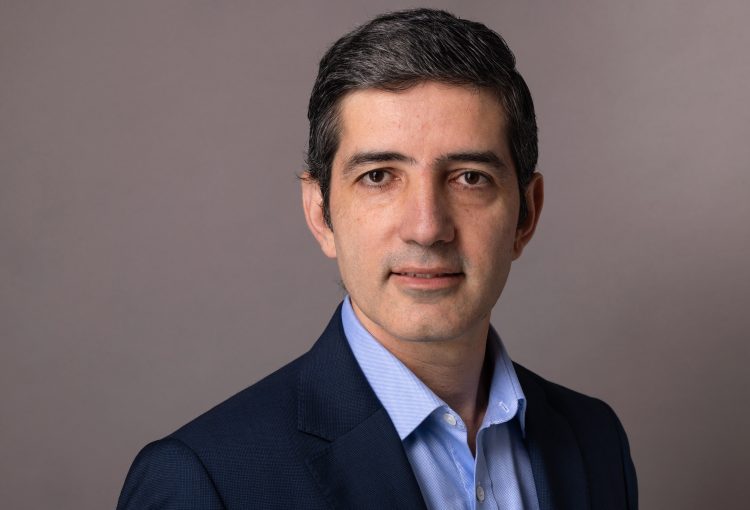
We are proud to announce that Arnak Dalalyan, director of CREST, Hi! PARIS Fellow and Professor of statistics at ENSAE Paris, has been awarded a European Research Council (ERC) Advanced Grant for his project SAGMOS – Statistical Analysis of Generative Models: Sampling Guarantees and Robustness. This highly competitive grant will support his ambitious research at the intersection of statistics, machine learning, and artificial intelligence.
With this new grant, the CREST now hosts eight ongoing ERC projects: three ERC Starting Grants, three ERC Consolidator Grants, and now two ERC Advanced Grants. This remarkable track record reflects the strength, diversity, and international visibility of fundamental and applied research at the lab. Arnak Dalalyan joins a long line of CREST researchers distinguished by the ERC, following for example the recent ERC Consolidator Grant obtained by Yves Le Yaouanq in economics.
About Arnak Dalalyan
A mathematician and statistician, Arnak Dalalyan studied at Yerevan State University (Armenia) before obtaining a PhD in statistics from Le Mans University in 2001, and an HDR from Sorbonne University (formerly Université Pierre et Marie Curie) in 2007. After postdoctoral research at Humboldt University in Berlin and several academic positions in France, he joined ENSAE Paris and CREST, where he has been director since 2020. His research focuses on mathematical statistics and its applications to machine learning, with particular emphasis on robust methods, high-dimensional data, and sampling techniques.
SAGMOS – Statistical Analysis of Generative Models: Sampling Guarantees and Robustness
Generative models — algorithms capable of creating realistic texts, images, music, or molecular structures — are now at the heart of many technological innovations, from artistic creation to drug discovery. The SAGMOS project will provide new mathematical guarantees on the reliability, originality, and efficiency of such models, particularly diffusion models that have become the new standard in the field.
“In recent years, generative models have made remarkable progress. But we still need to understand how much data is required for these models to generate reliable and truly novel outputs. The SAGMOS project aims to bridge this gap by providing precise theoretical guarantees,” explains Arnak Dalalyan.
The project will lead to the recruitment of PhD students and postdoctoral researchers, and to the organisation of international workshops to disseminate its findings.
The ERC Advanced Grant
The ERC Advanced Grant is one of the most prestigious funding schemes in Europe, supporting established researchers with a track record of significant research achievements. The grant allows recipients to pursue ground-breaking, high-risk projects that can lead to major scientific advances. The funding awarded to Arnak Dalalyan reflects the European commitment to frontier research and the scientific excellence of the CREST research centre.
Impôts et perception : l’expertise du CREST mise à contribution
Le Conseil des prélèvements obligatoires (CPO) vient de publier la note n°11 (juin 2025) présentant les analyses complémentaires de la deuxième édition du Baromètre des prélèvements fiscaux et sociaux. Ce travail inédit repose sur un appareil statistique sophistiqué mêlant données déclaratives et données administratives. Il bénéficie de l’expertise de chercheurs du CREST, fortement mobilisés depuis la première édition de 2021.
Une collaboration au service d’une meilleure compréhension du consentement à l’impôt
Le Baromètre du CPO, mené en partenariat avec Harris Interactive, l’Insee et le CREST, vise à mieux comprendre l’opinion des Français sur les impôts et cotisations sociales. Pour la première fois, les réponses des enquêtés ont été appariées à leurs données fiscales réelles (revenus, taux d’imposition), dans un cadre sécurisé et anonyme via le CASD, le Centre d’accès sécurisé aux données.
Des résultats éclairants sur la perception de l’impôt
L’étude confirme que la satisfaction vis-à-vis de l’usage de l’argent public reste le facteur le plus déterminant de l’acceptation des prélèvements. Elle révèle également que près de la moitié des Français connaissent avec précision leur revenu fiscal et leur taux d’imposition, une donnée souvent sous-estimée dans les enquêtes classiques.
Les travaux mettent aussi en évidence que la surestimation de son propre taux d’imposition est corrélée à une moindre acceptation de l’impôt, alors que les réductions d’impôt pour dons aux associations sont associées à une plus grande adhésion au système fiscal. À l’inverse, les crédits d’impôt pour garde d’enfants ou emploi à domicile semblent, de manière paradoxale, associés à un moindre consentement.
Le CREST, au cœur de la recherche socio-fiscale
Un groupe de chercheurs du CREST a été impliqué dans toutes les étapes du projet, depuis la conception de l’enquête jusqu’à l’analyse des données appariées. Leur contribution témoigne de la capacité du laboratoire à combiner outils empiriques de pointe et enjeux de société, notamment autour des questions de justice fiscale, de perception citoyenne et de politiques publiques.
Cette collaboration confirme l’importance de produire des indicateurs fiables pour nourrir le débat public, et montre que les sciences sociales quantitatives ont un rôle essentiel à jouer dans l’évaluation des politiques fiscales et sociales.
Navigating the Future of Money: Highlights from the Second (Back To) The Futures of Money Workshop
On 15-16 May 2025, Blockchain@X Research Center — an academic chair of École Polytechnique hosted at CREST — held the second edition of (Back To) The Futures of Money workshop, at the Maison de l’Amérique Latine in Paris.
This two-day interdisciplinary event brought together scholars, policymakers, and industry experts to discuss the evolution of monetary systems, blockchain innovation, and the future of decentralized finance (DeFi). The program featured academic presentations, industry talks, roundtable discussions, and informal exchanges during the breaks and lunches.
The first day explored the economic and geopolitical dimensions of cryptocurrencies. It featured academic presentations by Bruno Biais (HEC Paris), Linda Schilling (Olin Business School), and Cyril Monnet (University of Bern), followed by a roundtable discussion on the geopolitics of payment systems, moderated by Christian Pfister (Université d’Orléans).
In the afternoon, Laurent Camus (Banque de France) introduced the current state of stablecoin regulation, setting the stage for a lively panel discussion with representatives from Circle, Société Générale, and Angle Protocol. The day concluded with academic insights on privacy-preserving payment mechanisms from Agostino Capponi (Columbia University) and on verifying total value locked (TVL) in DeFi from Pietro Saggese (IMT Lucca).
The second day shifted focus to technological perspectives on blockchain and DeFi. It opened with a forward-looking keynote on technology convergence by Sudhir Pai (Capgemini), followed by a session on trust frameworks for AI and blockchains featuring Gilles Fedak (iExec) and Jason Delabays (Zama). The academic segment continued with presentations from Hanna Halaburda (NYU Stern) and Christoph Schlegel (Flashbots), addressing mechanism design and Sybil-resistance on maximal extractable value (MEV).
In the afternoon, Fahad Saleh (University of Florida) and Andrea Canidio (CoW Protocol) presented their perspectives on the interactions between blockchain layers and Ethereum’s immutability. The day concluded with talks from Louis Bertucci (Institut Louis Bachelier), Evgeny Lyandres (Tel Aviv University), and Julien Prat (IP Paris) on lending protocols, quantitative investment strategies, and systemic risk in DeFi.
We extend our sincere thanks to all speakers, panelists, and participants who contributed to the success of this workshop. (Back To) The Futures of Money II reaffirmed the need for interdisciplinary collaboration in navigating the rapidly evolving financial landscape shaped by blockchain technology. We look forward to continuing the conversation in future editions.
The Blockchain@X Research Center at École Polytechnique aims to combine academic excellence with institutional and scientific prestige in order to foster innovation in blockchain. A pioneer in its field and financially supported by Capgemini, Nomadic Labs and Caisse des Dépôts, it brings together scientists in computer science and economics whose research focuses on blockchains and related technologies. The chair also offers a wide range of courses to students at École Polytechnique who wish to learn about this constantly evolving field, and contributes to the organization of international academic conferences such as Tokenomics.




